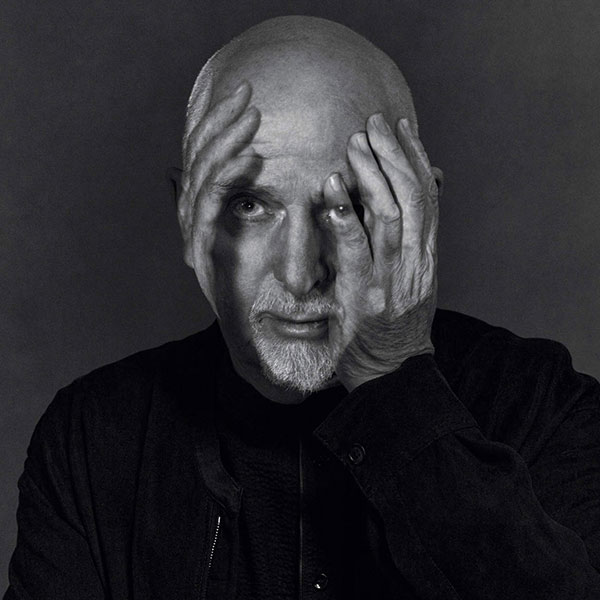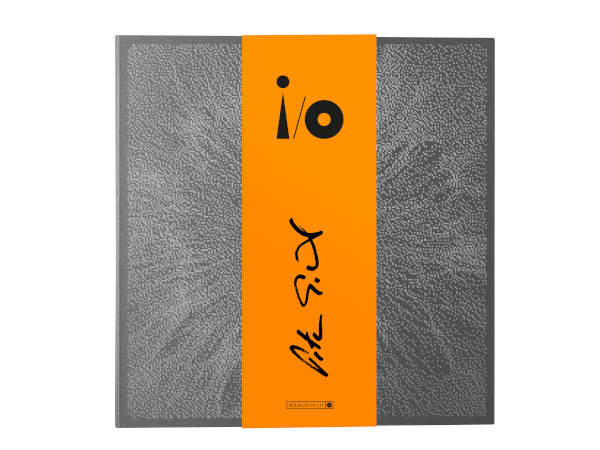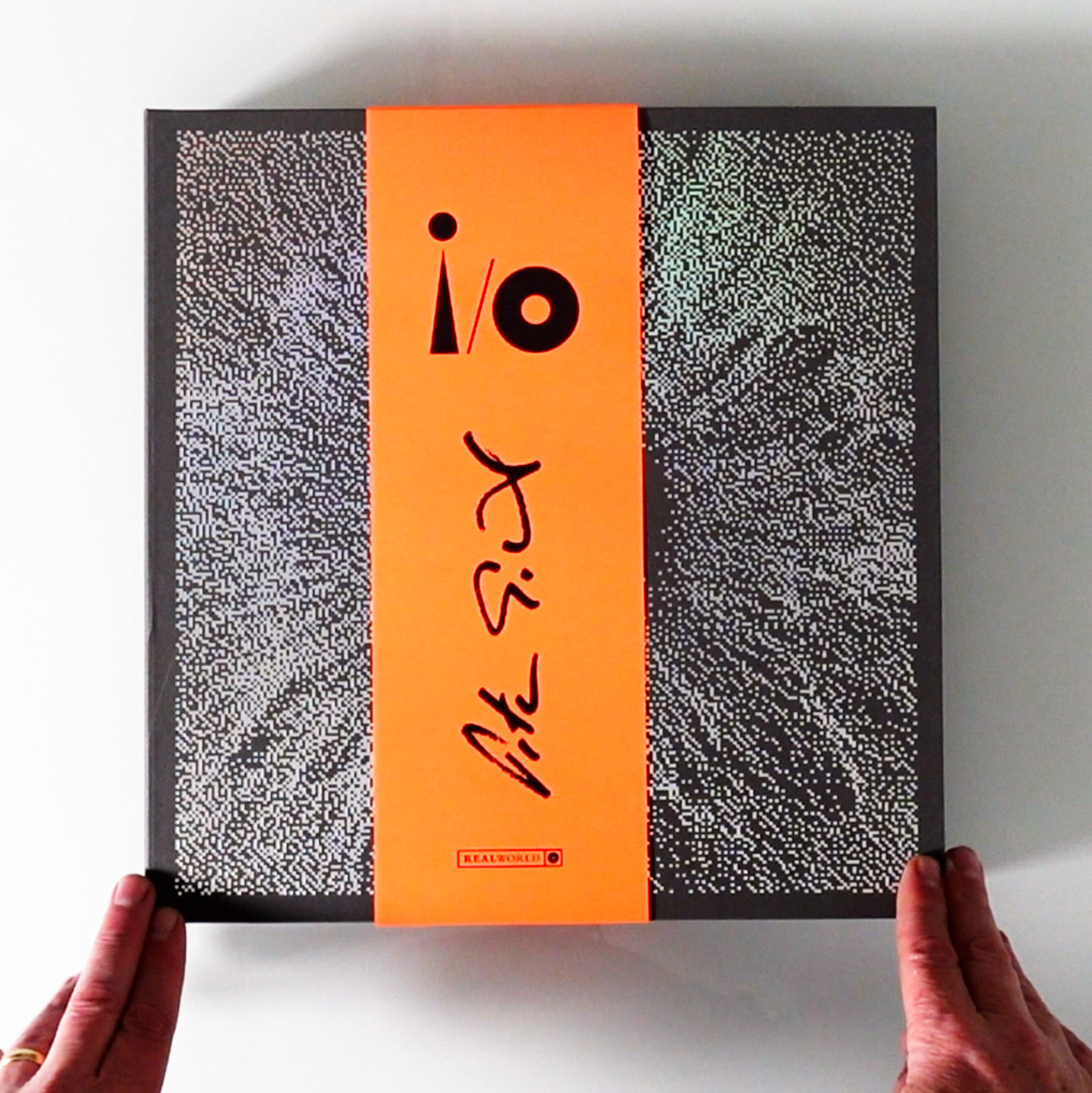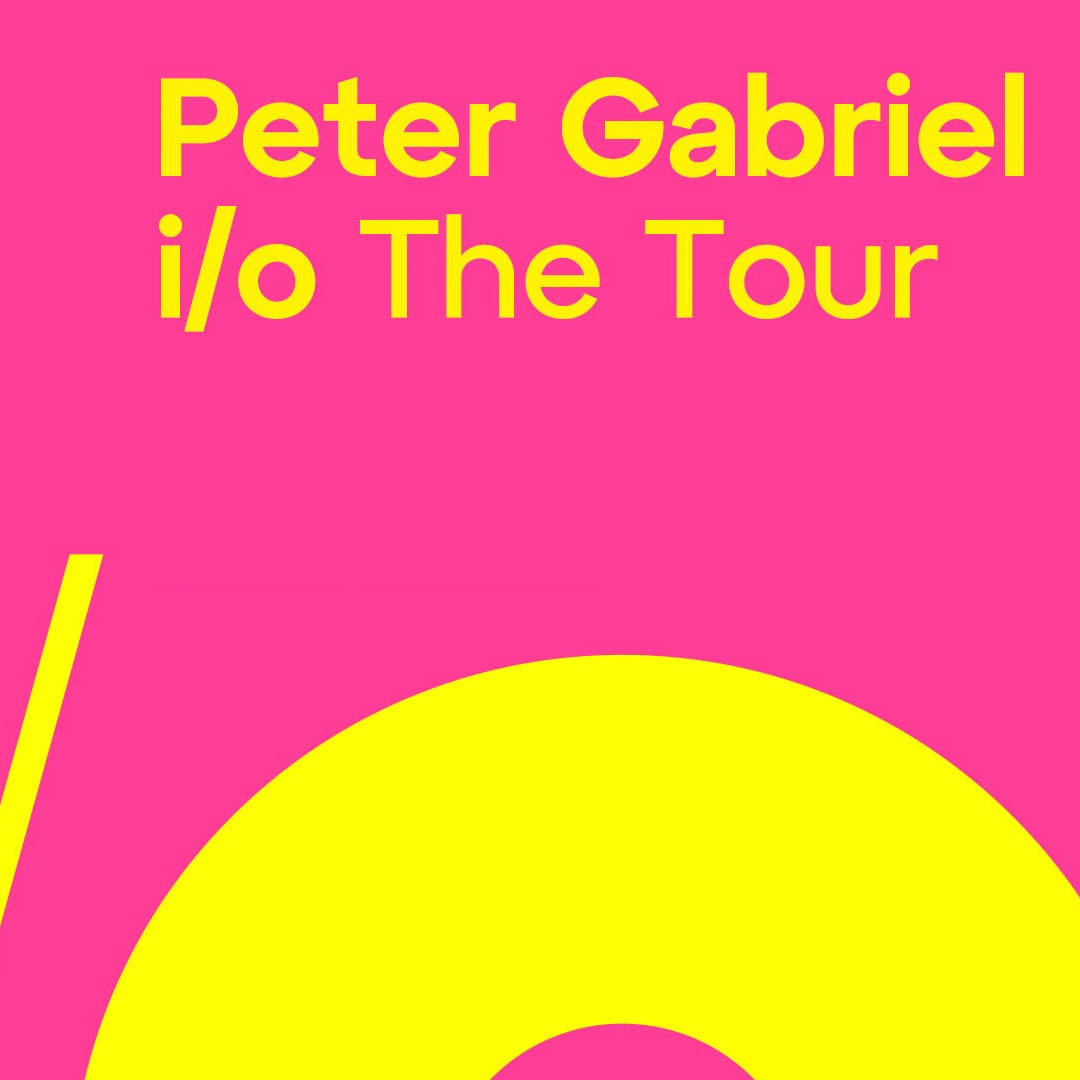Peter Gabriel’s i/o reviewed by SDE
Detailed review of the 12-track album

It’s somehow apt that Peter Gabriel released every track on its own during this year because i/o – his eighth studio album of original songs – feels like a greatest hits, of sorts. Granted, we’ve waited 20 years, but with the quality on offer it has been worth the wait. But just what has he been up to? Perhaps Gabriel has suffered from writers block and, with the cork finally out of the bottle, delivered with a splurge of high quality pop, or is i/o effectively a collection of the best three tracks from four never-issued ‘phantom’ albums?
i/o is very much an album that wonders about our place in the world (“let’s find out what’s going on” suggests ‘Panopticom’) and wanders about all over the place, musically, while it muses on mortality, morality and an uncertain future.
Panopticom has that stuttering, clipped pop-funk verse section with Gabriel in tight control of his vocal delivery before it opens up wonderfully for the full-voice choruses and the warmth of that acoustic guitar backing. It boasts different sections, tempos and moods which is typical of many of the songs on the album, but Peter manages to fuse everything together and such is the quality of the production with its textures and layers, the spaces in between are good as the vocal sections.
The Court’s verses pull fruit from the same tree as ‘Panopticom’ but it has a that wonderful air-being-sucked from-the-room chorus. While the break section feels a little forced, flicking the water of musical theatre in your face (“Out of this sentence / The ball and the claw…”), ‘The Court’ also boasts one of my favourite sections of this whole album, when the piano comes in for the wonderfully languid outro (“So many reaching for it…”). Exquisite.
Playing for Time is a moving piano ballad that spotlights Peter’s voice and makes you recall his work in the 1970s. The simplicity and beauty of the melody and the restrained string backing is a welcome change from some of the clatter that precedes it.
The title track i/o is a humble meditation on the human condition and our place in the world. Gabriel sings “I’m just a part of everything” and about how we belong to everything including “octopus’ suckers and the buzzard’s wing”. This is certainly a key track lyrically and Peter chooses to express his feelings in an earnest, almost childlike simplicity (“I got stuff coming out, stuff coming in”) as if to communicate to as a wide an audience as possible. At first this song feels slight, but it gets under your skin. By the end, the relaxed, intimate vibe has turned into a rousing singalong “i/o, i/o I’m coming out, I’m going in”.
Next we’re back to Gabriel at his brilliant best with the brooding Four Kinds Of Horses which is one of those songs you play and then just immediately skip back and play again, while turning up the volume. It’s a magnificent centrepiece to the record and delivers in every respect. It has the dark production complexity that we’ve come to expect from premium PG (Brian Eno contributes additional synths and “Electric Worms”) and you’re listening in rapt anticipation as he half speaks the verse section before the hairs on the back of your neck stand on end with the “Come all the nights” section which would be more than good enough to be the chorus, but is in fact a “pre-chorus” because the actual chorus follows: “Four kinds of horses, four kinds of mеn / Ah, you say you’re something differеnt / But you do it all again”. I think we know what he means with those lines.
The album continues in this vein. ‘Road to Joy’ is vibrant, uplifting and is as catchy as hell, with a massive chorus, while ‘So Much’ is intimate and contemplative. Like ‘Playing for Time’ this is largely just Peter with a simple piano backing. “This edition is limited” he sings, meaning the fragile human body. Love Can Heal is a haunting, meditative ballad, with a pillow-soft, twinkling production and ‘This Is Home’ is a earworm of the highest order, with a great melody and vocal performance from Gabriel. The album ends perfectly with Live and Let Live as Peter sings “it takes courage to learn to forgive, to be brave enough to listen, to live and let live”.
If someone told you that this was a lost, unreleased album from 1989, you’d probably believe them. Peter’s voice is remarkably well preserved and, crucially, he hasn’t decided his ‘sound’ needs updating. Gabriel is loyal to his longtime collaborators such as bass player Tony Levin (who’s played on every PG solo album) and guitarist David Rhodes (a ‘newbie’ who has only been around since 1980). These players, along with the likes of drummer Manu Katché and Brian Eno, give i/o the classic Peter Gabriel sound and it’s one to treasure and enjoy.
In truth, none of the songs on i/o quite match the peaks of gilt-edged Gabriel (‘Solsbury Hill’, ‘Games Without Frontiers’, ‘Mercy Street’ etc.) but the best numbers aren’t far off. It’s the general consistency of the album that really impresses. It’s playability. It’s a record devoid of weak tracks: everything is either good or very good and there’s something for everyone: touching ballads, clipped funk-pop, power-pop, ‘darker’ tracks with hushed atmospherics and lyrically it’s as interesting and aware as ever but Gabriel isn’t banging you over the head (with a Sledgehammer) to drive his point home.
If the album is dead then Peter Gabriel has just revived it and given it new life. Tremendous.
i/o was reviewed for SDE by Paul Sinclair. It’s out now via Realworld and the 2CD+blu-ray edition (with Atmos Mix) is still available via the SDE shop via this link or using the button below.
Compare prices and pre-order

Peter Gabriel
i/o 2CD edition

|
|
||||||||||||||||||||||||||||||||||||||||||||||||||||||||||||||||||
Compare prices and pre-order

Peter Gabriel
i/o 2LP vinyl bright-side mix

|
|
||||||||||||||||||||||||||||||||||||||||||||||||||||||||||||||||||
Compare prices and pre-order

Peter Gabriel
i/o 2LP vinyl dark-side mix

|
|
||||||||||||||||||||||||||||||||||||||||||||||||||||||
Compare prices and pre-order

Peter Gabriel
i/o box set
Compare prices and pre-order

Peter Gabriel
i/o 2CD+blu-ray

|
|
||||||||||||||||||||||||||||||||||||||||||||||||||||||||||||||||||

 Reviews
Reviews

 SDEtv
SDEtv
By Paul Sinclair
41